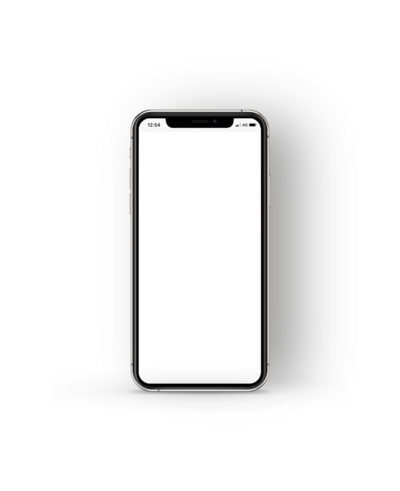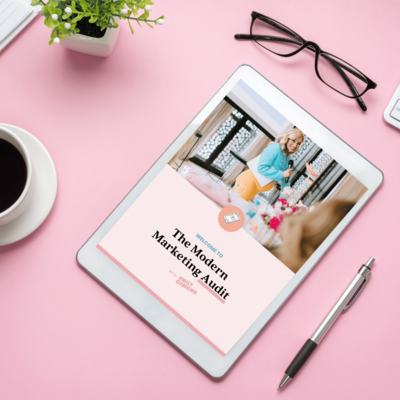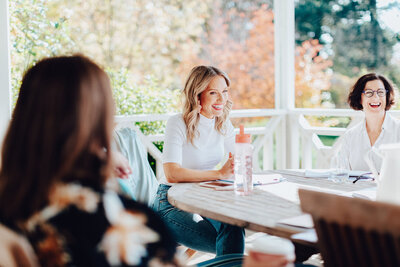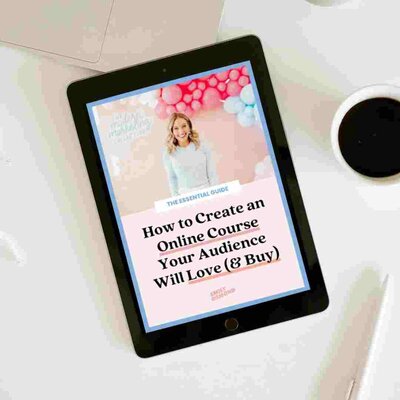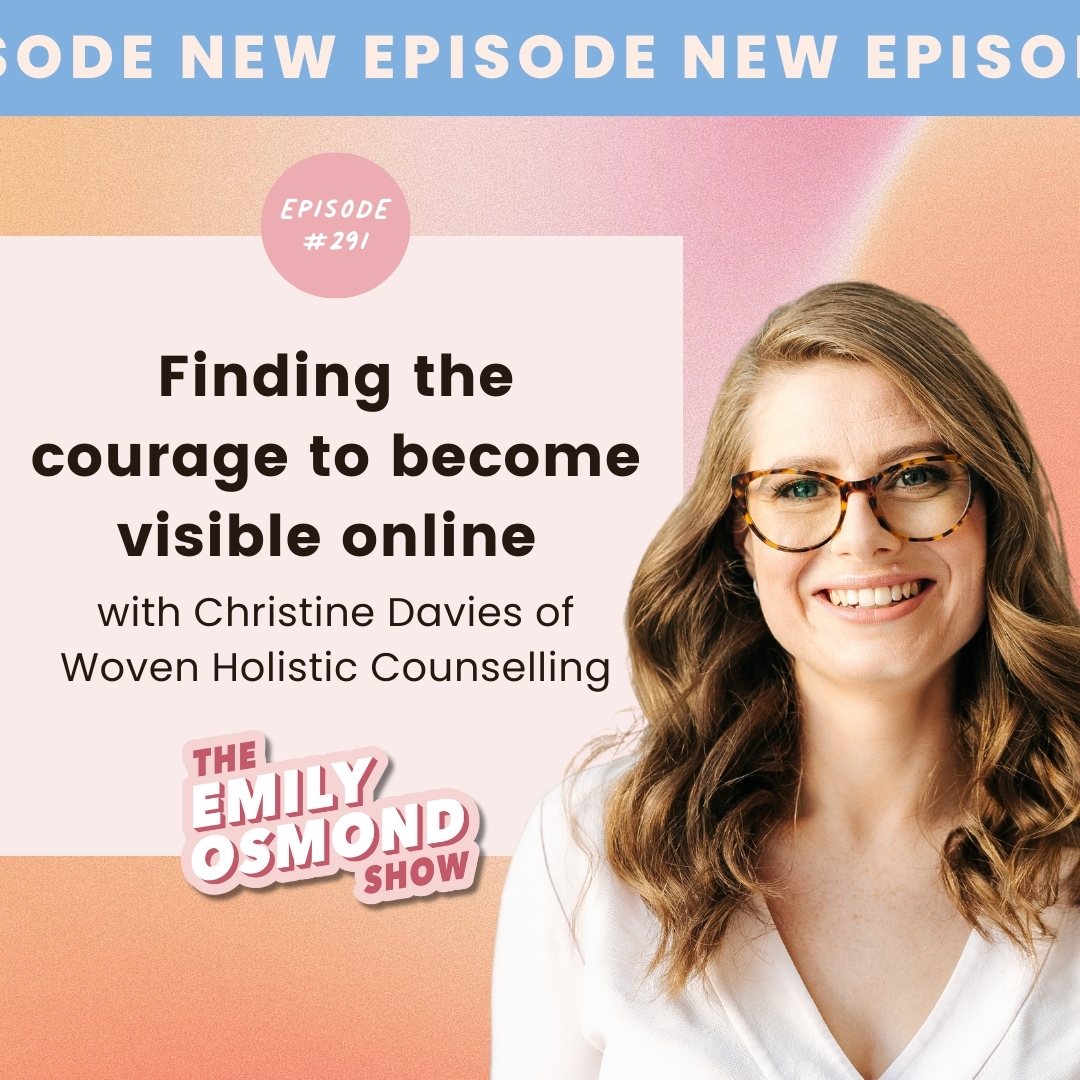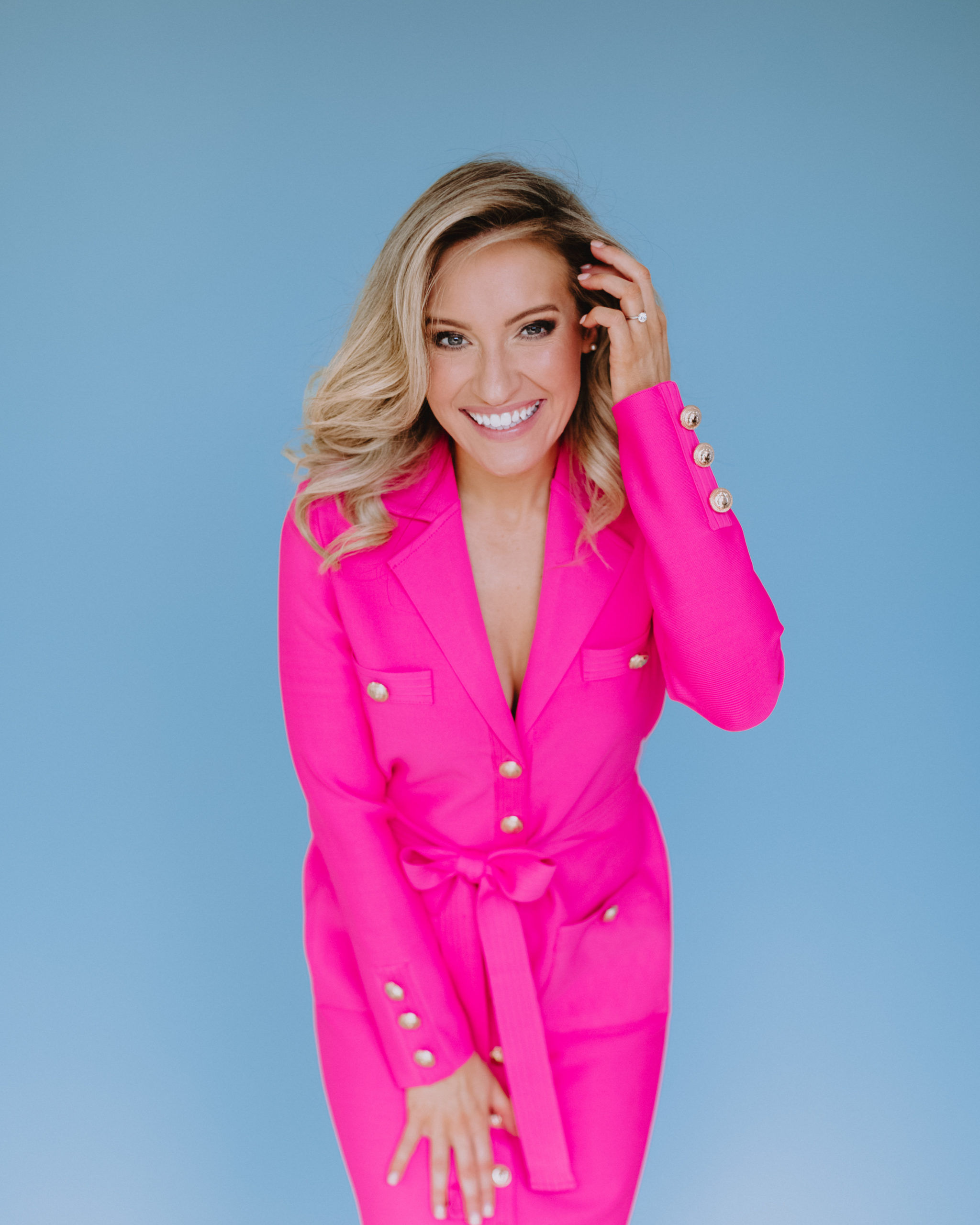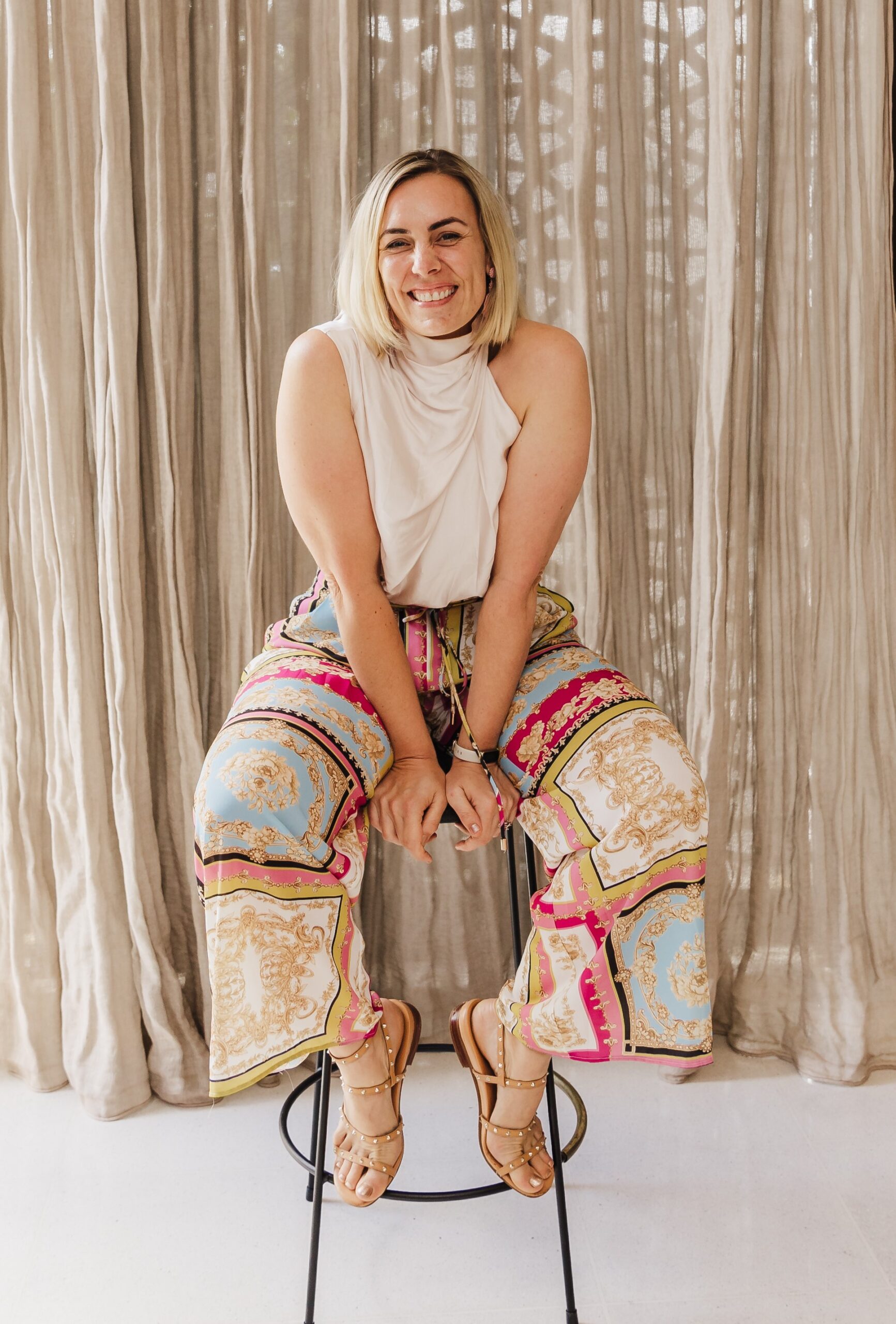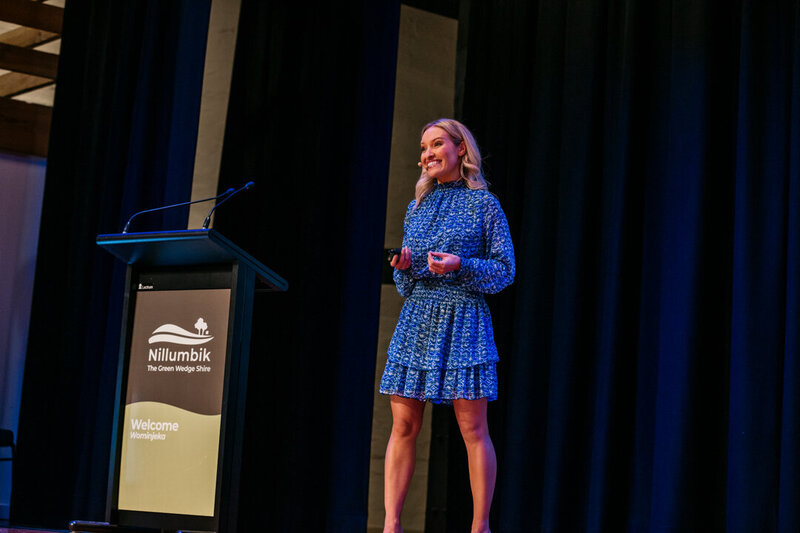explore now
Save big on my go-to tools & tech
Fav Tools
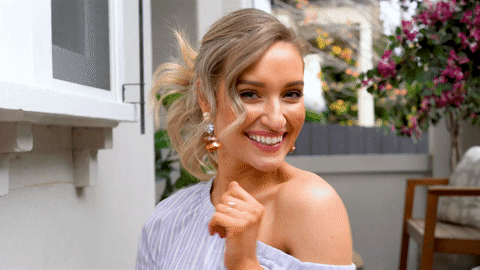

tune in now
Tune into the top rated podcast for practical strategies and candid conversations with entrepreneurs
podcast
The Emily Osmond Show


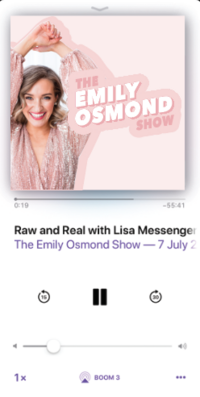



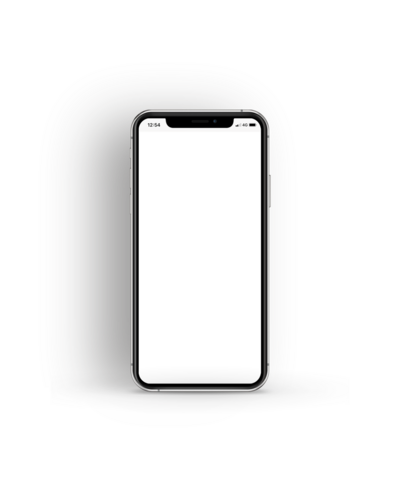

learn more
I’m an international marketing coach, top-ranking podcast host, speaker, interiors lover and black coffee drinker.
Hey, I'm Emily




How to create Time Magic with Melissa Ambrosini and Nick Broadhurst
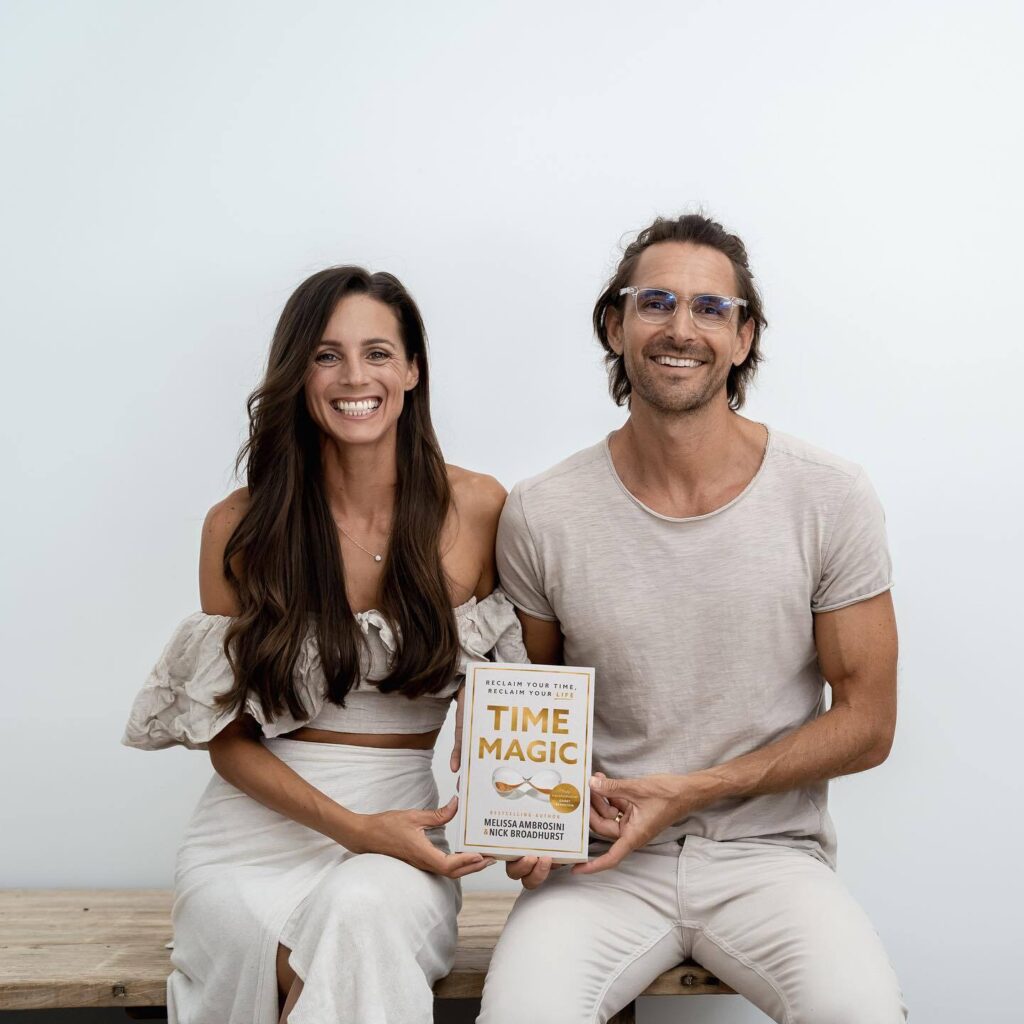

If you feel like you don’t have enough time to get everything done and you’re trying to do it all without much to show for it, this episode is a must listen. In a world where every piece of information is at your fingertips, you don’t need another time management strategy. What you need are the tools, techniques and wisdom to create a more spacious, meaningful and rewarding life and that’s exactly what we’re talking about today.
WELCOME MELISSA AMBROSINI & NICK BROADHURST
In this episode, I’m joined by two amazing guests, Melissa Ambrosini and Nick Broadhurst, who have recently released their revolutionary book, Time Magic. We’re talking today about some of the incredible lessons in this book that teach how to create the spacious, fulfilling life you’ve always imagined.
Melissa is a best selling author, host of the top rated podcast, The Melissa Ambrosini Show, TedX speaker and devoted mother to daughter, Bambi. Melissa’s husband, Nick, is a singer, songwriter, producer and author and together they have created a life of joy, wellness, love and dedication to sharing their wisdom with others.
TIME MAGIC
With practical applications you can start implementing straight away, Melissa and Nick share tips and strategies to free up hours, weeks and even years of your life and what to do with your newfound time. They provide simple techniques to increase your productivity, skyrocket your creativity and completely change your mindset around health and ageing. This is a book for people who are feeling time poor, stretched and stressed out parents, entrepreneurs, employees, creatives, and anyone hungry for a more spacious and meaningful life.
TIME POOR AND BURNT OUT
Our conversation today centres around how Time Magic came about, the inspiration for writing the book and some of the incredible strategies Melissa and Nick write about. Nick and Melissa reflect on their lives before prioritising their time, struggling with being present, saying yes to everything and ending up burnt out with chronic and adrenal fatigue. Nick shares that awareness is the first step and how this journey has enabled them to create more space for the things they love and what brings them the greatest sense of meaning.
We talk about how Melissa and Nick have implemented the strategies they discuss in Time Magic, their schedules, and the importance of being intentional.
BECOMING A MOTHER
Having recently become a mother to their beautiful daughter, Bambi, Melissa shares how her journey into motherhood has changed her life, what her schedule looks like now and how she continues to implement strategies in Time Magic in a sustainable way. She shares how her priorities have changed, the need to adjust her expectation of herself when you become a mother and the importance of being present.
THREE TIPS TO CREATE MORE TIME
If you are interested in discovering ways that you are losing time and simple, practical ways to claim it back, Nick and Melissa share three tips from Time Magic that you can implement straight away. Nick shares a micro strategy that saves daily time and frustration, and Melissa talks about looking at where you are spending time digitally each day to discover where things might need to shift.
Nick talks about looking at your mindset around health and ageing and discusses the chapter in Time Magic called Everyday Longevity, which focuses on prioritising your physical and mental health.
If you know that your life isn’t where you’d like it to be, you’d like to create more spaciousness for the things that light you up and prioritise your mental and physical health, I know this episode is going to be a great service to you and inspire you on your journey.
LINKS:
- Time Magic (Book)
- Mastering Your Mean Girl (Book)
- Open Wide (Book)
- Comparisonitis (Book)
- Instagram: https://www.instagram.com/melissaambrosini/
________________________________________________________________________________________________________________
[00:00:00] Emily: -Hello and welcome back to the show. I hope you’re going well. How has your weekend been? Chances are, it was a long one for you if you were lucky enough to enjoy the public holidays over Easter. I’m planning this is recording this one ahead of time and I’m planning on heading away with family and just.
[00:01:02] Spending a few days relaxing and enjoying each other’s company. So I’m really looking forward to that and also enjoying other people’s cooking. My family are much better at cooking than me and they quite enjoy it. So, uh, I’m looking forward to that side of things too, and just being together and having Lando there with us too
[00:01:20] and his extended family. Now, this week on the podcast, I have two guests, and I think this might be the first time that I’ve actually had two people on the other side of the mic. The two people that I’m talking about are Melissa Ambrosini and Nick Broadhurst. This is a very, very cool episode because I actually subscribe to Melissa’s podcast many years ago.
[00:01:46] It’s called the Melissa Ambrosini Show, and it was one of the very first podcasts that I actually listened to. So now to have her on my own podcast is a pretty cool moment. , Melissa and Nick, they have just released in the past week their book, which is called Time Magic. Reclaim Your Time, Reclaim Your Life. And this book is going to help you discover the surprising ways that you are losing time and the simple, very practical ways to claim it back.
[00:02:18] And then how to make the most of that time that you free up. ? What should you be doing with that time?
[00:02:26] This is for people that are feeling time poor, stretched and stressed out parents, entrepreneurs, employees, creatives, and anyone hungry for a more spacious, meaningful life. I was pretty happy as I read through that I had a few of these things in place and other areas were just, uh, I could see how I could take things to the next level to make things again for me, more calm, more spacious
[00:02:50] more organised and to continue to refine and improve the way that I’m spending my time and making the most of the time that I have to do the things that matter most for me. So as you tune into this episode, you’re going to hear how the two of them made time to actually write this book and why they have written it. How particularly Melissa’s life has changed now that she has welcomed her first bub,, Bambi into her life.
[00:03:19] Their biggest tips to get started on today when it comes to reclaiming your time and much, much more in this episode. So grateful for the two of them to coming on the podcast. They recorded this on the day that their book was released into the world, so it was a really exciting day, and I know that you’re going to love this episode.
[00:03:39] So without further ado, allow me to introduce you to Melissa Ambrosini and Nick Broadhurst.
[00:03:46] thank you both first of all for being here and making the time to do this
[00:03:54] episode.
[00:03:55] Melissa: We are so excited to be here.
[00:03:57] Emily: And congratulations. Today is the actual launch day for your new book Time Magic. So what a thrill and honor to chat with you on this really exciting day.
[00:04:04] Nick: Thank you. It’s, it’s super exciting. It’s, um, it’s been a lot of work to get it to this point, but, we’re excited to see what everyone thinks. It’s slightly nerve wracking actually, because yeah, you start getting reviews. We did see the first review come back and it was very positive, so we’re happy with that.
[00:04:18] Emily: It is absolutely jam-packed your book, uh, with so many practical tips and also reflections and stories from both yourselves and also your peers, your friends, uh, incredible people from around the world around how they make time work for them. I wanna start off with why did you write this book?
[00:04:38] Nick: Well, I think for us, you know, we weren’t always the way we are. We have come from backgrounds where I was incredibly time poor. I went from being a successful, um, musician to working in real estate and all of a sudden I had no time. And I used to spend time with my son, my young son at the time, and I just wasn’t present with him.
[00:05:01] I was on the phone, I was trying to close a deal. It was the worst feeling. And you know, I always say you should never regret anything. But if I could go back and change anything, it would be being present with with Leo when he was younger. And that’s because I was really time poor. I didn’t know these things.
[00:05:17] Melissa: Nick tells a story how he would be playing cricket with Leo and throwing the ball with one hand and be on the phone, closing deals on with the other hand. And that’s just not how he wants to do life or how either of us wanna do.
[00:05:32] Nick: Yeah. So Melissa was similar. She, well, I’ll let you tell the story, but you were very much a people pleaser. You said yes to everything.
[00:05:39] Melissa: Yep. That was me, said yes to every single thing that came my way. Wanting to people please. That came from like a long lineage of people pleasers, like my mother, my mother’s mother, my mother’s mother’s mother, you know? And it was deeply ingrained within me and it actually burnt me out and burnt my adrenals.
[00:05:57] And I ended up with chronic fatigue and adrenal fatigue and ended up in hospital and that’s a similar time to when I really started my journey and I realized that the way that I was living my life was not serving me. It wasn’t inspiring me and it was not how I wanted to live my life.
[00:06:18] Emily: You write about that so well in Mastering Your Mean Girl. I’m due for a reread of that. I was just trying to find it. I’m like, I’ve lent it to someone. , but you covered that so well. And do you know what my favorite line from your book is? This one? And it really reflects on what you’ve just both said.
[00:06:32] Page 72, if you’re happy for me to read it out. It says, “Remember, it can be uncomfortable to disappoint someone else in order to not disappoint yourself, but your ability to create the spacious, priority driven schedule and life. of your dreams rises in direct proportion to your ability to tolerate that discomfort.
[00:06:54] Nick: That’s so good, babe.
[00:06:55] Emily: So good. And that hit me across the face and I said no to something a few days ago that normally I would say yes to. And, um, I’ve recently become a Mum. I have a, an almost seven month old son. He’s downstairs with my partner at the moment.
[00:07:09] And um, it has made me much more, , protective of my time. And I know that these are lessons that are for me to learn. I’m a people pleaser too, and recognizing when I was about to jump in to say yes, absolutely. And I was only doing that for the other person out of the fear that they may not like me if I said no. What part of reclaiming your time do you think this own practice and I guess strength and awareness plays in being able to say no to other people and their priorities when it feels like they’re encroaching on us and maybe we don’t even realize.
[00:07:43] Nick: Well, I think it starts with awareness, right? It really starts with awareness. And when you become aware of how, like truly how precious time is you’ve gotta sort of understand that first in order to, then it’s like anything, if someone goes through a massive health crisis, all of a sudden their health becomes a massive priority.
[00:08:03] Right? And they change a lot of things in their life about the way they live. Same with time when you realize how precious it is. In fact, I’ll give you some statistics. So you, you would’ve known from the book, we worked with a statistician to figure out like, how are we actually spending our time? And when you look at
[00:08:18] on average, we are living around 79, 80 years on, on average, the average person is sleeping for about 26 years. We are working for just over 13 years. We’re on our phones for almost 13 years. And that’s actually interesting because that statistic is also based on when a average 15 year old child will get their first phone.
[00:08:43] But these days they’re getting phones much younger than that. So you can probably turn up the number of years on the phone there. which is pretty scary. There’s almost 10 years watching tv. There’s almost five years doing domestic duties. We are eating for almost four years, which is,
[00:08:58] Melissa: I’d like to increase that one.
[00:09:00] Nick: That’s, I’m cool with that. Yeah, that’s a great
[00:09:02] Emily: good one.
[00:09:03] Nick: We’re spending about three and a half years on vacations, just over three years on holidays, which is great. A lot of people don’t get that in their lifetime. Schooling for 1.6 years.
[00:09:13] Melissa: But I was just gonna say like, just over three years in your whole life on holidays, like for me, I’m like, that’s not enough.
[00:09:22] You know what I mean?
[00:09:24] Nick: It’s not enough. And then so when you add all these things up, you end up with, if you imagine if you zoom out and you look at your life as a pie chart And where you’re spending your time, the biggest chunk being sleep, of course, and what’s left at the end of your life. For the things that bring us the most, meaning it’s just over a year, which is really quite scary.
[00:09:47] So when we actually found these numbers, it’s spurred us on even more to write this book because we realized we are living in a way which has afforded us to carve out a lot of space for the things we love, and we wanted to show people how to do that. And we had sort of done it our own way separately and then coming together had sort of amplified that.
[00:10:08] And time magic really is the solution to that question of, you know, where did my time go? I haven’t got enough hours in the day. That common feeling that we tend to have and time magic is the solution to that.
[00:10:20] Emily: You write in the book about one of. your friends Who, um, has a very
[00:10:25] I think, familiar story that he was working all hours of the day working around the clock until he hit, I think it was, he decided he was going to reach 50 and then he would retire and then he would enjoy life and spend time with his children and spend time with his wife.
[00:10:41] But over those years of him working all hours, not really being there at dinner time or for his kids’ activities you write that the marriage broke down. He’s now living a single life and not really able to see his kids as much as he would like and all that type of thing. And it’s such a familiar story around not I think living presently in the time we have now and thinking, I’m gonna do this so that I can have that time later.
[00:11:08] I would love to hear for you that, , both of you, you’ve implemented these strategies in your book and you’ve created more of that time to do the things that you want to do now. What does that look like for both of you? I know that Nick, it sounds like, some rock climbing and abs sailing and surfing.
[00:11:26] Anything else that you are doing, just that you adore? And then for you Melissa, what that looks like as well. How are you choosing to spend time now that you’ve really consciously and intentionally created more space?
[00:11:37] Nick: Well, for me, Music, really music is almost everything I do to create more space, goes towards creating more space to, to do my music because we’re already living a life which allows us to spend time in nature to be with our friends, to have time together. Not as much as we would like always. I mean, certainly we have to improve. Like anyone, you know, we, when you have a book launch, you know, things change, you know, so we have lots of interviews today, so things change for us today.
[00:12:09] But for me, and we’ll talk about this later I’m sure, it comes down to what brings me the greatest sense of meaning. Meaning the definition of meaning is when you feel that you are contributing to something bigger than yourself. And to me, that’s my music. So there’s lots of things we do personally, which Melissa can speak to, but for me it’s about music.
[00:12:30] And when I’m in that zone and I have no distractions and I’m writing, that’s when I feel like I’m truly living my dharma, I’m here, like I’m really alive in those moments.
[00:12:42] Melissa: And for me, a majority of my time is spent with my beautiful daughter. So that that is just the best. It lights me up so much, and I love just being with her.
[00:12:56] I love playing with her. I love taking her to the beach, going and seeing the animals, you know, we just have the best time. I love having conversations with her. I just love sitting with her and chatting whilst she eats. So my daughter is like my number one. And that’s where I spend a lot of my time.
[00:13:14] And then also with my work, which I love doing. You know, I love my work, I love my podcast. I love my Holy Mama community, my books, you know, I love all of the work that I get to do, all of the women that I get to support, And then my friends, you know, spending time with our friends is such a huge priority because I love it so much.
[00:13:37] It makes us feel so good. I am a generator in human design, so for me, I get full from interactions with people. So we do lots of that. And then a lot of, you know, that time with our friends and with my daughter, our daughter, is always in nature, so mostly at the beach or outside at a park. We are always outside unless it is raining, we are outside.
[00:14:02] And so that’s where I spend a lot of my time , and also with Nick. But you know, that’s definitely an area where we could improve because you know, since having a child as you know, you have to be even more intentional with creating the space for your partner.
[00:14:20] Like you have to be really intentional cuz you know, everything shifts and you know, this whole book is about creating a life that is meaningful for you because we only get one. This isn’t the dress rehearsal. You don’t get to 60 then retire, then start living your life. You don’t wait till Friday afternoon and then start living and enjoying your life.
[00:14:44] You enjoy your life today. You treat every day like a holiday or a vacation every day. So how can you bring that magic into your every day life? That time magic into your everyday life because we only get one and we don’t know when it’s over. We don’t know when that curtain is going to come down. No one does. We don’t have a crystal ball.
[00:15:08] We don’t know when the people in our life, when their curtain is going to come down. We may only have one or two more Christmases with our parents. You know, like we don’t actually know. And so all of this stuff like was just so at the forefront of our mind and we were like, how are we living our life?
[00:15:28] Like we needed to make some really big changes when we first got together, and this is why this book was born. And because so many of our friends kept on saying to us, how do you do it all? How do you have thriving careers and a thriving family and still have time to go to the beach for an hour every day?
[00:15:48] Like how do you do it all? And we share everything in the book. And healthy boundaries is a huge part. And also discipline, you know, discipline and consistency. They play a huge role as well. But you know, life is so precious and we need to live every day like it’s the best day ever because it is the best day ever.
[00:16:10] Emily: I did one of the activities in your book around writing out what you are prioritizing, and then also what you want to prioritize and what makes you happy. And I realized making my son giggle is just if I can do that every day, oh, that is a good day. Yeah, if I can make time for that, that is just what brings me so much joy.
[00:16:27] And I think, um, just being in the moment with him and being silly. * That’s been really fun now that I have a, a child it’s kind of brought that out to me. And I love both of your funny videos that you do, and I’m sure a lot goes on behind the scenes where you’re just being goofy and laughing and just, um, enjoying the moment.
[00:16:45] I would love to ask how you went about creating time, making time to actually write this book. What did that practically look like for you? it’s no small task. How did you. make that work?
[00:16:56] Nick: Well it’s It’s interesting because this book initially had a totally different title.
[00:17:01] We wrote 80,000 words of it, four years ago. There was probably 50% of it was in there. I would say 40, 50%. but it had a different sort of message, a different angle. And then Covid, good old covid comes around.
[00:17:17] And we just sort of had this, or Melissa had this intuition that this was not the next book.
[00:17:20] And she said about writing comparisonitis. And um, of course during Covid there was this huge spike in obviously device usage and social media. So it was an important time for comparisonitis to come out and so we put this on ice basically. And it was interesting during covid, the sales in the personal development of self-help books really went down quite a lot and fiction went through the roof cause people were wanting an escape.
[00:17:48] Yeah. You know, which is fair enough, I was reading fiction during Covid.
[00:17:51] Melissa: And he’s never really read fiction so that, you know, we are all about mindset and entrepreneurship and personal development. So for him to kind of go, Hmm, I wanna read fiction, I was like, wow.
[00:18:02] Nick: It also inspired me to write a fiction novel.
[00:18:04] So I wrote a fiction novel which is based on journal entries that we kept at the beginning of our relationship and I fictionalized it. But it’s kind of A star is born mixed with 50 shades of gray and a bit of celestine prophecy or something. It’s pretty cool. And so that’s the next book. So then, our publisher reached out and said, what’s happening with that book we signed four years ago?
[00:18:29] You know, and we’re like, well what do you think? They said, we think it’s great timing. So we sort of sat down and went through it again and realized, oh, it’s mostly there, but we now see what this book is about. And then the title came to us, which is Time Magic. It was actually called 79 Marbles before that.
[00:18:48] It’s a totally different sort of concept. So, yeah, that’s how the book came about. And in terms of creating space for it, as I said, we had a lot of it written and we had to sit down and kind of rewrite it. So it was almost like starting from scratch, even though we had a lot of it already, and we did it in our own time.
[00:19:03] We had deadlines. Melissa always hits her deadlines early. I hit it right on the day because that’s how I operate.
[00:19:10] But we’re really proud of it. You know, it was, it was a big effort, but it came out very well we think.
[00:19:15] Melissa: And I think, you know, I got this huge download that Comparisonitis was next, and I called my publisher and I was like we can’t do this one.
[00:19:25] And, and they were like, why? And I was like, you just have to trust me. Like my intuition is saying no. And so they were like, okay. And cause I’ve done all of my books with them. They’re incredible. Harper Collins in Australia, they’re just the best ever. And so we put that on ice like Nick said.
[00:19:42] And I truly believe that another reason why Time Magic wanted to come out now as opposed to a few years ago. Not only, you know, covid, but because it needed for me to ride it from the lens of a mother. And I wasn’t yet a mother and I was a step mumma. Which is very different to being a mother, especially to a mother of a newborn.
[00:20:07] And so I feel like Time Magic was like, go and become a mother and then write from that perspective. And so, yeah, you know, like that is put through the whole book. Which is so important because it’s very different for someone to, you know, talk about time, who doesn’t have children and yeah, it’s a different perspective, you know?
[00:20:30] Emily: That leads me to my next question, Melissa, cuz it is a whole new way of, of, uh, figuring out life hey, when you do have a a bub, a kid and they like bring so much joy and they need so much time and we want to spend so much time with them. I was listening to a podcast for your 500 episodes podcast that you both did and you shared on there a little bit about, I think just that readjustment into you used to get so much done and seek productivity and be able to do so many things, just the realization and the adjustment to Okay, right now I’ve got to be kind to myself, I think, and look at resetting my own expectations that I’m only putting on myself in the more limited hours that I have for my work.
[00:21:19] I would love you to share, what that work schedule looks like now in terms of how you are making that part of your day or part of . Your week and just what’s working for you now in terms of that?
[00:21:31] Melissa: I’m
[00:21:32] Still to figure it out babes. You know, I’m, I am definitely not, there’s no such thing as perfect, and I always talk about this in all of my books, all of my work. There’s no such thing as the perfect day, the perfect routine, the perfect work schedule. It’s all perfect and it’s all not perfect.
[00:21:55] And so, I think one of the biggest things for mothers is to readjust your expectation on yourself when it comes to the amount of work that you can get done in one day, or that you do get done in one day. So what happens is when I finally went back to work after a year off, I still had that same expectation on myself to do and achieve and work the same way like I was before I had Bambi.
[00:22:22] And that is absolutely ludicrous and not possible. And so I’ve had to reprogram my expectation on myself, be kinder and literally rewire how I think about achievement and success and all of those things. And it’s been huge. You know, that transition from Maiden to Mother, which we call Matresence, and I talk about this in Holy Mama, my program. It is such a huge transition and it is definitely not given enough support.
[00:22:57] It’s not given enough airtime. You know, out there, it’s, it’s such a huge transition and we need to support women who are going through that transition. And so it’s about constantly shifting and finding what works for you. And, and we are always doing that. And as the children get older and older, like you will have to keep transitioning and have to keep shifting things and going, okay, well she’s okay to have more time with her nanny, or whatever it is.
[00:23:28] So it’s about constantly tuning in and checking in and readjusting with when your children grow. And I think for me it’s like Monday to Friday, you know, I get a section of time to work and, and the other times I am present with her. You know, I try very hard not to touch my phone. I don’t ever take calls when I’m with her.
[00:23:54] The only time I really touch my phone when I’m with her is to put on music and it’s very important. And if I do need to do something, like I’ll say, Nick, I need to quickly go send an email in my office. Can you please just take her for a couple of minutes? But it’s really important to me that when I’m with her, I’m with her.
[00:24:12] And when I’m working, I’m working. And being really kind and gentle to myself and soft and readjusting my expectations has been huge for me.
[00:24:22] Emily: And yourself. Nick, what’s it look like for you?
[00:24:25] Nick: Yeah. I think for me it’s a bit different because there’s less need on me from Bambi.
[00:24:31] That’s more placed on Melissa at this sort of age. So it hasn’t changed a whole lot for me. I would just in general, I just think that my life’s a lot richer because when I do come out from my office and I have this beautiful little fairy running around, naked eating watermelon or something, you know, like, and it’s just, it just makes life so much richer.
[00:24:54] And you know, I’ve got a 17-year-old son, which still amazes me, Ashley, when, when I say that.
[00:24:59] And he’s in his final year of school and you know, he’ll be out in the, in the wild world doing his own thing.
[00:25:05] Which is just incredible. So I don’t think it’s changed a lot to be honest. But what has become very apparent to me is I want more children because why not amplify, multiply the feeling you have. I mean, it’s so beautiful having children in your life and having family. And I don’t, I don’t wanna say the older you get, but the older you get, the more years you live, you realise what else is there? You know, like there is meaning, of course there is dharma. All these things are important, but ultimately spending time with the people you love is number one. And you don’t love anyone, like you love your own children. So I’m pretty excited to explore having more.
[00:25:49] Melissa: Definitely, definitely is definitely on the cards.
[00:25:53] Absolutely. And I truly feel like it’s my most important work, you know? Yes. Books and podcasts and supporting all of the women that, that I support. And Nick with his music and everything that he does. Yes that is all so important and, and brings us so much joy, but ultimately my most job is raising my daughter, and if I’m not doing a good job there, if I’m, just not present, overwhelmed, stressed, angry, reactive, then I’m totally missing the point of life.
[00:26:34] And so that’s where the deep work happens. You know, right there in our four walls. That is the most important work in our four walls.
[00:26:46] Emily: Last couple of questions for you both. People have to read the book to get all the incredible insights and tips and tricks, but if there were just three tips that you could give to someone that’s listening and thinking, this is really calling to me to find, create more time for being there with my kids or my family or travel or looking after and being there with my aging grandparents or what or my health, whatever it looks like to them. What are three of your favorite ways to get started now?
[00:27:17] Nick: I’ll start with a little micro strategy. Something which is, it may seem small, but it’s these little things that you do in the book, when you add them all up is where you start to get a lot of time back. And one of those is just an app which we absolutely swear by, which you would’ve read in the book called One Password. And I dunno how people live without one password. Now to be clear, it’s, it doesn’t mean you have one password.
[00:27:44] If everything. It just is this vault, which captures every single login, all your credit card details, your passports, your software licenses. You know, just kind of your entire life is in this thing. It’s fully encrypted, it’s never been hacked, and it just means that when you do have to buy something or you do need some sort of information or you need to log into a website, it’s just instant click of a button.
[00:28:07] And how much time, if you add it up over a lifetime, do we spend searching for passwords? There’s probably 40, 50 days maybe of just stuffing around looking for these things.
[00:28:18] Melissa: And not only that, then like clicking forget password, then you’ve gotta go to your email and then you’ve gotta wait for the email to come in, and then you’ve gotta reset your password.
[00:28:26] So yeah, add up all of that over a lifetime. And it’s just a waste of time.
[00:28:32] Emily: And I think it bubbles up that frustration hey, as well, which Isn’t, isn’t really the energy we wanna be having with us in our day.
[00:28:37] Nick: No, and I think as well, just to add to that, um, one of the reasons these little things are important is, for example, security.
[00:28:42] Now we dunno how it happened, but we had a massive Facebook hack recently where both of our pages were stolen. We had thousands of thousands of dollars stolen. , it’s been eight weeks now and Facebook still haven’t given our pages back. Shame on you meta we’re, you know, it’s just like criminal the way that they’ve treated us, to be honest.
[00:29:01] Even though we have the best security that we think, we feel like we do, somehow it still got hacked. So it just goes to show the importance of having amazing digital hygiene. Cuz somewhere along the line something happened and someone got in. Now it just, maybe it’s just a very, very smart hacker, I don’t know.
[00:29:18] But two-factor authentication on everything these days is so important. And in one password you can literally scan those QR codes and it, and it will save that information. So next time you need to enter a six digit thing to get into something. Puts it in automatically for you. So these little things are really important.
[00:29:36] So that’s one. What’s one of your top tips, baby?
[00:29:39] Melissa: I think one of my favorite ones in the book is actually looking at where you’re spending your time digitally. And you can do that on your phone and you can look at what apps you’re using, like where you’re spending your time. And I think most people don’t do that because they don’t wanna know the answer
[00:30:03] Emily: Yep. I saw mine pop up the other day without me wanting to see it. And I’m like, oh, wow. How did that add up?
[00:30:09] Melissa: I know, right? It’s shocking and embarrassing. Like really, it’s, it’s, yeah. For me anyway, I’ll speak from my own personal experience. So I think when we look at the actual data and go, okay, I’m spending five hours on Instagram a day.
[00:30:27] Wow. Okay. Okay. Something needs to shift here. So looking at the actual data and then asking yourself, am I okay with this? When I put my head on my pillow at night, am I okay with where my precious time was spent today? And so if not, do something about it. You know, there’s so many things that you can do.
[00:30:53] You can put limits on different apps and things like that. There’s so many things you can do, but for me, that is a really big one and a very low hanging fruit for a lot of people.
[00:31:05] Nick: Yeah. And so I’ll say the third one would be, the chapter on Everyday Longevity. This was the one I loved writing the most, to be honest and it, it looks quite different and we had to actually reduce it quite a lot.
[00:31:17] There was a whole section on the environment originally in the book.
[00:31:21] I was making the point that, okay, cool so we’re, we’re now making the most of our time. We’ve reclaimed in this book you can reclaim up to 16 years. That’s our promise to you.
[00:31:30] Just by implementing what we talk about in the book, which is incredible. Right? 16 years. What’s that worth to you? It’s worth, it’s priceless and then we teach you how to actually live longer. That’s the point of everyday longevity. And for one of these activities or strategies to make it into that chapter, it had to meet certain criteria.
[00:31:48] It had to be either free to do or very cheap and accessible, scientifically proven, very effective. And we can now using the strategies and time magic, get the time back, spend more time doing things we love and now, Add more time onto our life.
[00:32:05] And again, what’s that worth to you? What’s an extra year or two years, 10 years? What’s that worth to you? And it can be done by following those strategies in that chapter and telling. She’s tapping me on the bottom, so she wants to say something.
[00:32:18] Melissa: I was just gonna add to, that, you know the book is about reclaiming your time, adding 16 years to your life if you follow the steps that we talk about in the book.
[00:32:30] But there’s no point in adding years to your life if you don’t have your health. Your physical and your mental health. So that’s why the everyday longevity and all of the health hacks were put inside the book because we want you to live long, meaningful, happy, and healthy lives. I want to be, I was saying this in an interview yesterday.
[00:32:52] I want to be doing yoga still when I’m 100. Like Nick’s grandma, she was 95 and still able to do yoga, and that is the goal. You know, we don’t wanna be riddled with the disease and, and all sorts of things physically and mentally when we’re in our second half of our life. We wanna be thriving, running around with our great-grandchildren.
[00:33:16] That’s where we wanna be. So it’s the things that you do today that will manifest that.
[00:33:24] Yeah.
[00:33:24] Nick: I just wanna add to that, that it’s really important, our mindset around health and longevity and what is our belief system about aging. Because for me personally, I have a very, very inbuilt, I’m not too sure where it came from, but my, my belief system is that every year I’m getting better, I’m getting stronger, smarter, faster, more mobile, more flexible.
[00:33:47] That’s not something, it’s not a story I’m telling myself. It’s my actual belief system, which I’ve somehow developed through whatever, because I obviously lost my health years ago and I had to rebuild myself. And I honestly feel that’s what’s happening. And if, if that’s not your belief system, I would really implore you to one, read the book and two, to start working on your mindset around health aging.
[00:34:11] You are gonna be a reflection of what your thoughts are. If you think you’re gonna be 80 years old and decrepit, that’s probably what’s gonna happen. If you think you’ll be 80 years old and running marathons, you can do that. And there’s this great guy, forgotten his name. He’s on Rich Rolls podcast recently.
[00:34:25] He’s a centenarian and he’s a hundred years old, and he was diagnosed with terminal colon cancer at 69, who’s given three years to live. His son gave him this book on. How to basically heal from cancer. It was a macro biotic diet at the time. So he went fully plant-based and not only is he still alive, he’s got about 30 or 40 world records in marathons and decathlons and like all these sorts of things.
[00:34:53] He’s still potentially gonna do one more marathon and he’s a hundred years old,
[00:34:56] right. So imagine his belief system, right? And, and through this he found such strong meaning, his new meaning, his new purpose in life was around educating on sustainability. So he now has this really strong purpose and it shows because you listen to him, he would never know he is a hundred years old because he’s changed his belief system around what it’s like to to age.
[00:35:18] So I think that’s a really, really important thing to mention as
[00:35:22] Emily: It’s so inspiring hey, to see people that perhaps change and shift our own assumptions, , of way life is meant to be done and shows us, hang on a minute I can rethink that and I can see other possibilities out there. So thank you so much both for being here.
[00:35:38] Final question, is there anything that I haven’t asked you that you would share?
[00:35:42] Melissa: Ooh, just what is your life worth to you? You know what is nothing that I want you to ask me, but just, I just wanted to share this. Like we only get one. We only get one and like it makes me emotional even saying that, just thinking about my daughter, that I only get like one with her. I like in this time, Space and reality, like I’m sure we’ve had many past lives together and I’m sure we’ll have many in the future together. But like in this body, in this time, space, reality. This is it. This is it. And so we really do need to make the most of this beautiful one magical, precious life that we have been gifted.
[00:36:32] And we teach you how to do that in Time Magic because it’s so important. And you are important. Your children are important. The work that you do is important and we wanna help you unleash that and live a life that is meaningful and inspiring to you and it’s going to look different for everyone, and this is really important.
[00:36:56] You know, my ideal day is going to look different to someone else’s ideal day. My ideal year, my ideal life is, is going to look different. And it’s not about comparing, go and read comparisonitis if you need to stop comparing, but it’s not about comparing. It’s about finding what is meaningful to you and doing those things.
[00:37:19] We also talk about rest and why rest?
[00:37:22] Emily: Oh my gosh. It was so funny actually reading that part and
[00:37:27] I was reading, I’m like, yeah, but what is what do we do for rest. And then you wrote the line that’s like, okay, now for you A types or people pleasers or perfectionists, if you’re wondering, what am I meant to be doing for rest? Here’s some ideas.
[00:37:38] And I realized that one of them for me at the minute is lying outside on a mat in the sun and you write about that and how amazing that can be. And just lying there with Lando, my son, and maybe reading some books or but yeah, I loved that I had to laugh when you actually gave examples because we need them.
[00:37:54] Melissa: Well this is the thing, like lot of mamas especially, they’re like, rest, what’s that? And how do I do that? And what does that look like? And so, and it’s going to change as you evolve and that’s really important to remember as well. Like rest is going to look different at different phases and also, when we were writing the book, we speak about what brings you joy.
[00:38:16] So many people we were asking were like, well, I don’t know. And haven’t even given themselves the opportunity to ponder that question. And so for me, this year, this season in my life, I sat with myself and I was like, what really lights me up? What really lights
[00:38:32] me up? And one of them was dancing. So I went back to dance classes this year, which has brought me so much joy.
[00:38:40] I’ve started sewing, which is so beautiful and creative and brings me so much joy. And then another thing, gardening. You know, Nick and I are studying gardening. We’re doing a gardening course and we’re planting so much of our own produce, which is awesome. And so doing that is really bringing me joy.
[00:38:59] And so these three little things that I don’t monetize they have no agenda. They’re just the, the purpose of doing them is because they bring me joy, and we need to take that time to figure out what those things or thing is for us, and to do that every day if we can, and live every day, like it’s the best day ever because it is the best day ever.
[00:39:23] Emily: So Good. Melissa.Thank you for sharing. What about you, Nick?
[00:39:26] Nick: Well more just to make the point that, um, a lot of books about time are about time management and we make it very clear that this is not a book about time management, cuz time management tends to be learning how to squash more into your day. How to get more done, you know?
[00:39:45] And that’s not what this book is, is about. It’s about creating this spacious life that you know, that you’re worthy of, that you dream of. And it’s a very, as you know, it’s an extremely practical book. You know, this is a book where it’s not theory, it is like, right, step one, go and do this. Step two, go and do this.
[00:40:04] You know? So a friend of ours, Sally, who is reading it over the weekend, so she could leave a review for us today.
[00:40:11] And for anyone listening, if you have read it, we would be so grateful for a review on Amazon because it really, it just helps spread the book into more people’s what’s algorithmic really.
[00:40:20] So if you can, we, we do know this book is an absolute game changer for people, so we want to get it out there. But, um, Sally said, you know, I was gonna read it in one sitting, but I just need to sort of digest it, you know, because there’s a lot to do.
[00:40:36] But it’s all good because if you spend the time and you do it, you’re going to free up a truckload of time right. And as we say, up to 16 years, even if you just do like one thing, you might get a year of your life back. Just one, you know? So just wanted to make that point because, uh, you know, books about time can seem really dry sometimes.
[00:40:57] This is a, this is a fun, playful book, but it’s very, very practical. And we have our productivity system there called, um, Tick or flick, which I created. And that again, is an absolute game changer if you use Tick or Flick your life will never be the same. Simple as that.
[00:41:13] Emily: I’m gonna start implementing that one.
[00:41:14] I have my own version, but I’m like, this is next level. So good.
[00:41:20] Well, thank you so much to both of you for being here today for making the time to do this, and the biggest congratulations on getting this book out there in the world. You’re both incredible people. Thank you for sharing the work that you do, and I wish you both all the best.
[00:41:33] Emily – Melissa and Nick
Thank you, Emily. Thank you so much for having us.
— RACHEL CLARK, RACHEL JANE SEO + WEB DESIGN
I have simplified my offer and service, finding a niche for myself and a clear message, which means I’m now booked up 6 weeks in advance!
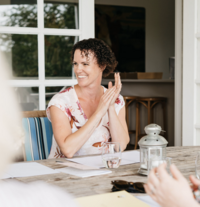

My flagship membership, The Modern Marketing Collective, has helped almost 1,000 entrepreneurs to become known as the go-to in their niche, attract more of their ideal clients and enjoy the flexibility, fulfilment and financial reward that they deserve.
Want help growing your business?
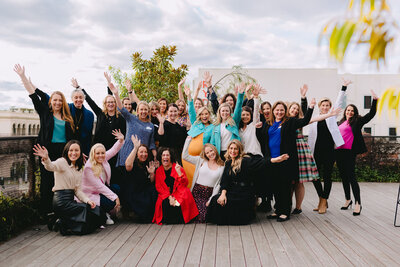

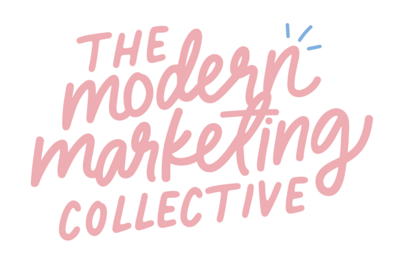

I acknowledge the Wurundjeri people as the traditional and ongoing custodians of the Kulin Nation - the place I call home, and I pay my deepest respects to their Elders past and present.
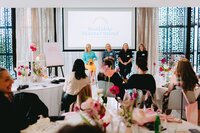





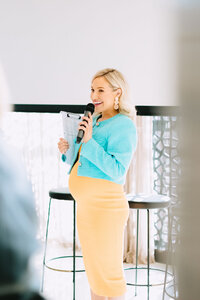

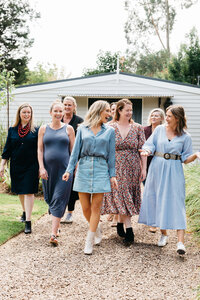

@EMILYOSMOND





